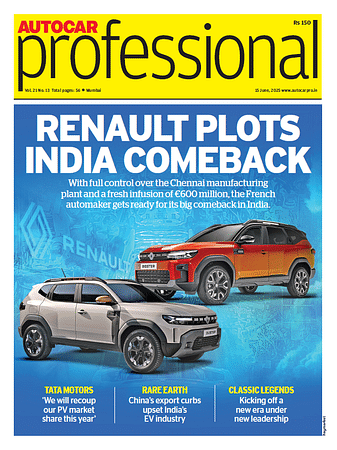India's Li-ion Battery Industry to See Over ₹75,000 Crore Investment by 2030: ICRA
A report by ICRA projects that India will have over 150 GWh of lithium-ion battery cell capacity by 2030, with investments exceeding ₹75,000 crore, as demand grows across the EV sector and stationary applications.
India's lithium-ion (Li-ion) battery industry is set to receive investments exceeding ₹75,000 crore by 2030, with over 150 GWh of battery cell manufacturing capacity expected to become operational, according to a recent report by ICRA.
The country's electric vehicle (EV) sector is expanding, driven by government initiatives, increasing consumer awareness, and the introduction of new models. With battery cells accounting for 35-40% of an EV's total cost, the focus on domestic manufacturing is increasing to reduce reliance on imports and strengthen the local supply chain.
Currently, China leads the global Li-ion battery market, dominating raw material processing and manufacturing. Battery prices have witnessed a decline of approximately 20% in 2024 due to an increase in supply. In the coming years, global Li-ion battery production is expected to surpass demand, which could influence pricing trends in India.
India's dependence on battery cell imports remains high, with local operations primarily focused on assembling battery packs. Demand for Li-ion battery cells in the country is projected to reach 11-13 GWh by FY2025 and is expected to grow significantly to 60-65 GWh by FY2030. Apart from EVs, demand for these batteries is also expected to rise in stationary applications.
Despite the growth potential, challenges persist in establishing a robust battery cell manufacturing industry. Uncertainties related to investment returns, technology reliability, and raw material sourcing continue to pose risks. Additionally, the development of battery recycling infrastructure remains limited. However, with policy support and increasing private sector participation, India is gradually moving towards reducing import dependence and strengthening its domestic EV battery ecosystem.
RELATED ARTICLES
Terra Motors Appoints First L5 Dealership in Varanasi, Targets 100 Dealers Nationwide
Japanese EV maker introduces Kyoro+, a high-speed electric 3-wheeler with 200 km range and ₹3.65 lakh starting price, of...
Hero MotoCorp to Launch a Battery-as-a-Service Model for VIDA VX2 Electric Scooters
Subscription-based model reduces upfront costs and offers flexible monthly payment plans for electric vehicle ownership....
Ather Energy to Expand Retail Network to 700 Experience Centres by FY26
Driven by rising demand for its family scooter Rizta, Ather Energy aims to strengthen its retail footprint with a focus ...





 By Sarthak Mahajan
By Sarthak Mahajan
 22 Mar 2025
22 Mar 2025
 3800 Views
3800 Views







 Shruti Shiraguppi
Shruti Shiraguppi


